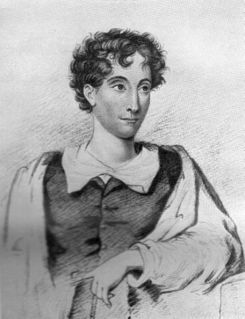A Quote by Joseph Addison
Related Quotes
Oh, thou did'st then ne'er love so heartily. If thou rememb'rest not the slightest folly That ever love did make thee run inot, Thou has not loved. Of if thou has't not sat as I do now, Wearying they hearer in thy mistress's praise, Thou has not loved. Of if thou hast not broke from company Abruptly, as my passion now makes me, Thou has not loved. (Silvius)
A God must have a God for company.
And lo! thou hast the Son-God to thy friend.
Thou honour'st his obedience, he thy law.
Into thy secret life-will he doth see;
Thou fold'st him round in live love perfectly-
One two, without beginning, without end;
In love, life, strength, and truth, perfect without a flaw.
What thou lovest well remains, the rest is dross What thou lov'st well shall not be reft from thee What thou lov'st well is thy true heritage Whose world, or mine or theirs or is it of none? First came the seen, then thus the palpable Elysium, though it were in the halls of hell. What thou lovest well is thy true heritage.
Look what thy soul holds dear, imagine it
To lie that way thou goest, not whence thou com'st.
Suppose the singing birds musicians,
The grass whereon thou tread'st the presence strewed,
The flowers fair ladies, and thy steps no more
Than a delight measure or a dance;
For gnarling sorrow hath less power to bite
The man that mocks at it and sets it light.
My own lov'd light,
That very soft and solemn spirit worships,
That lovers love so well--strange joy is thine,
Whose influence o'er all tides of soul hath power,
Who lend'st thy light to rapture and despair;
The glow of hope and wan hue of sick fancy
Alike reflect thy rays: alike thou lightest
The path of meeting or of parting love--
Alike on mingling or on breaking hearts
Thou smil'st in throned beauty!
Thou O Spirit, that dost prefer Before all Temples th' upright heart and pure, Instruct me, for Thou know'st; Thou from the first Wast present, and with mighty wings outspread Dove-like satst brooding on the vast Abyss And mad'st it pregnant: What is in me dark Illumine, what is low raise and support; That to the heighth of this great Argument I may assert Eternal Providence, And justify the ways of God to men.
Why dost thou heap up wealth, which thou must quit,
Or what is worse, be left by it?
Why dost thou load thyself when thou 'rt to fly,
Oh, man! ordain'd to die?
Why dost thou build up stately rooms on high,
Thou who art under ground to lie?
Thou sow'st and plantest, but no fruit must see,
For death, alas! is reaping thee.
































